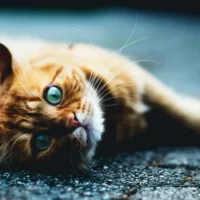Our feline friends are living longer than ever these days. That’s great mews! Thanks to modern veterinary care and a greater understanding of kitty care needs, many kitties are making it to their late teens or even their 20’s. Of course, making sure your furry buddy is eating a good, nutritious diet is crucial to keeping her healthy and purring. A Marriottsville, MD vet offers some advice on feeding an older cat below.
Consider Canned
Dry food and canned food both have their pros and cons. The main benefits of kibble are that it’s cheaper, lasts longer, and isn’t as messy. However, moist food typically contains higher-quality ingredients, and has a higher moisture content. You also have the option of offering both. Ask your vet what they would recommend.
Totally Taurine
Your feline buddy’s nutritional needs will change over time. All kitties need taurine, which is an an amino acid found in meat, fish, and poultry proteins. This is especially crucial for senior cats. In fact, taurine deficiency has been linked to retinal degeneration and dilated cardiomyopathy.
Purrfect Percentages
If you offer kibble, choose a brand that is between about 10 and 28 percent protein. If you offer Fluffy canned food, pick one that is about 4 percent fat and 8 percent protein. The fat should be identified, such as chicken fat. You’ll also want to choose foods that contain high-quality ingredients. Avoid brands that pack their products with fillers, such as corn or wheat.
Don’t Be Meowpulated
By the time Fluffy reaches her senior years, she’ll have her humans completely wrapped around her paws. Cats sometimes get a bit dramatic when begging for food. Your furry drama queen may act like seeing the bottom of her food bowl is a five-alarm emergency … even if she just ate. Pay attention to portion sizes, and don’t let that furry face fool you. You aren’t doing your feline overlord any favors by letting her become obese. Those extra pounds increase the risk of several health issues, including heart disease, kidney issues, and osteoarthritis.
Change Slowly
Do you think it’s time to switch to senior-formula cat food? Talk to your vet about when and how to make the change. Changes should be made slowly, over the course of several days.
Please contact us, your Marriottsville, MD animal clinic, with questions about feeding senior cats. We’re here to help!





